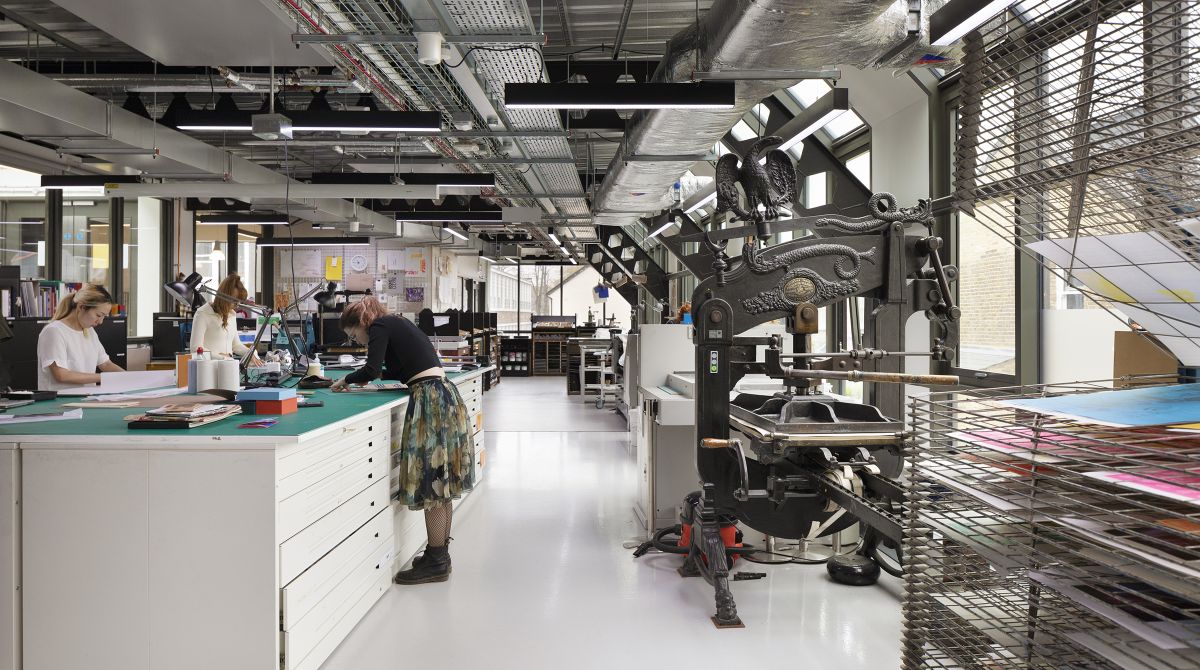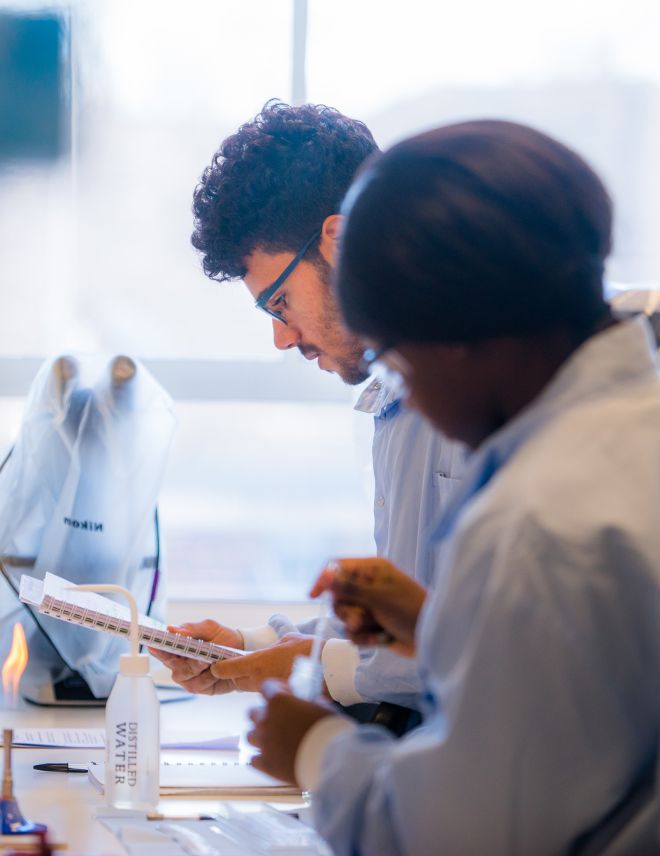Kingston University rises in research power tables in latest Research Excellence Framework
Posted Thursday 12 May 2022

Seventy per cent of Kingston University’s research has been rated as world-leading or internationally excellent in the Government’s latest Research Excellence Framework (REF).
The results represent a 10 per cent increase in the percentage of Kingston’s world-leading or internationally excellent research from the previous assessment, published in 2014, with the University’s overall grade point average rising to 2.89, up from 2.7 eight years ago.
The University rose 13 places to 71st in the research power tables published by Times Higher Education which considers quality of research as well as number of research-active staff submitting to the REF, placing 75th in the leading sector publication’s overall ranking of institutions.
Kingston University Vice-Chancellor Professor Steven Spier said the results demonstrated the impact the institution’s research was having across a range of disciplines.
“The 2021 REF exercise highlights where we are truly world-leading and our potential to build on our research strengths,” he said. “From helping shape government policy to transforming the lives of people around the globe, our growing reputation in research and knowledge exchange is evidenced in these latest results. This work, alongside the teaching and learning experience on campus that equips our students with the confidence and skills to meet the demands of industry, shows how our University community is making a difference across society.”
The UK-wide assessment exercise provides a robust assessment of the quality of research at higher education institutions across all disciplines, highlighting the diverse and rich ways research is benefitting society. Each element was given a star rating, comprising 4* for world leading quality, 3* for internationally excellent, 2* for internationally recognised, 1* for nationally recognised and unclassified where it failed to meet criteria for inclusion or fell below the nationally recognised standard.
Kingston submitted 414 staff spanning each of its four faculties across 11 Units of Assessment, with 37 impact case studies.

The results revealed that:
- Almost a quarter of Kingston’s research, 23 per cent, was rated world-leading (4*), compared to 16 per cent in REF 2014, with the University also ranking fifth out of 14 University Alliance institutions in the overall tables.
- Five Units of Assessment saw more than 70 per cent of overall research rated as 4* or 3* - Art and Design, Allied Health, Performing Arts, Computer Science and English. More than half of the submission in Art and Design was rated world leading.
- Four Units of Assessment secured 100 per cent rating of 4* or 3* for their impact - Art and Design, Performing Arts, Education, and Psychology. Art and Design also received 100 per cent 4* or 3* rating for environment.
- Six Units of Assessment scored above the sector average for impact – Art and Design, Performing Arts, Politics, Education, Allied Health and Psychology.
- All 11 of the Units of Assessment the University submitted had a majority of 4* or 3* research overall.
University Provost Professor Helen Laville said the results showcased the myriad ways in which Kingston’s research was creating knowledge and applying it to the problems faced by communities regionally, nationally and globally.
“The REF demonstrates the impact our research can have and that translates across to knowledge exchange. We want to focus on growing our strengths in disciplines where we are authoritative and innovative, aligning our work in research, knowledge exchange and education. By fostering connections between our academics and external partners, we can ensure the knowledge we create is harnessed collaboratively with research partners as well as businesses and communities.”
Pro Vice-Chancellor for Research and Impact Professor Simon Wortham said he was proud of the University’s performance, which showed the potential for Kingston to grow its research footprint.
“At Kingston we have a wealth of expertise in many areas that have a real impact across society - from health to cyber and digital technologies, the cultural industries and the creative economy, and art and design. Developing sustainable programmes across our research landscape will allow us to make the most of these strengths and opportunities to grow our research.”
In total, 157 UK universities took part in REF 2021, submitting over 76,000 academic staff. Submissions included research outputs, examples of the wider benefits of research and evidence about the research environment. It was assessed by a series of expert panels comprising UK and international researchers, external users of research and experts in interdisciplinary research.
- Explore the full REF 2021 results.
- Find out more about research at Kingston University.
- View Kingston University's research impact case studies.